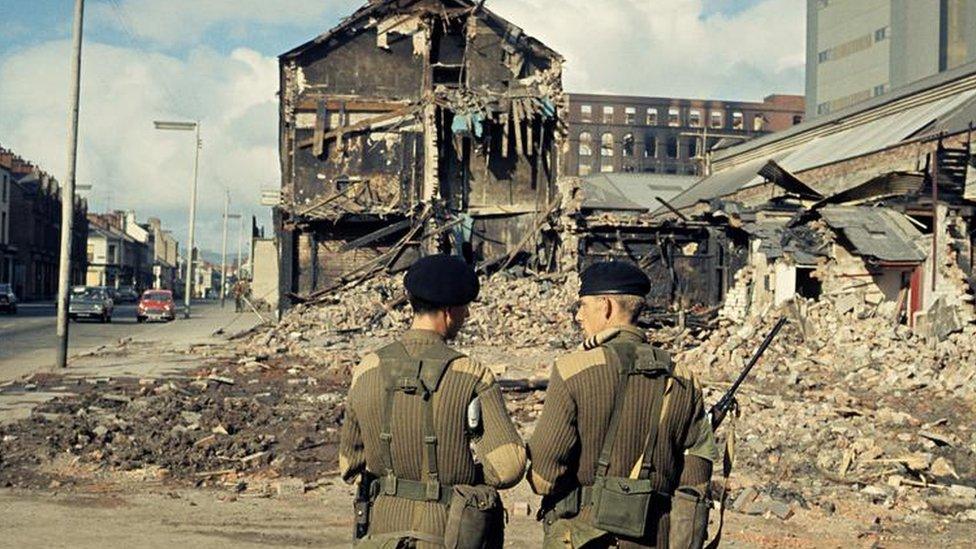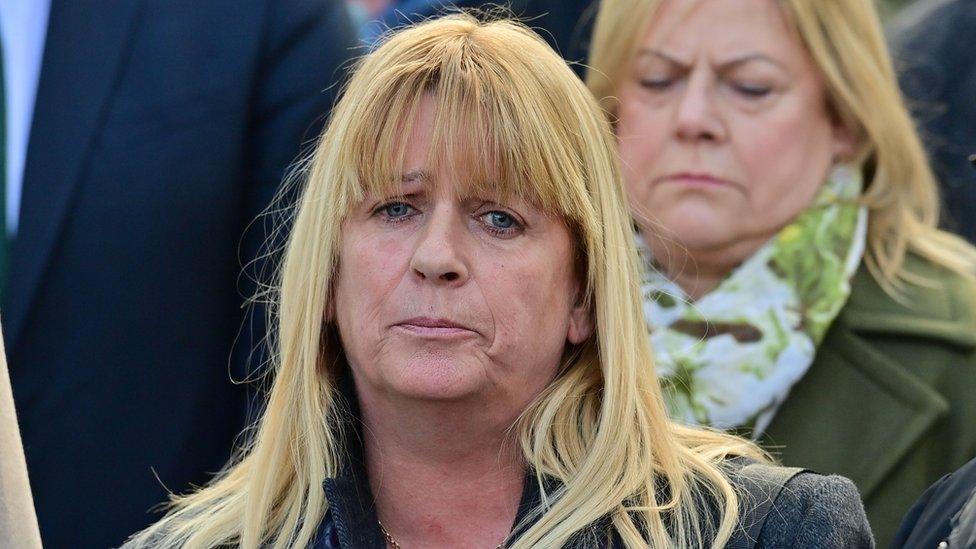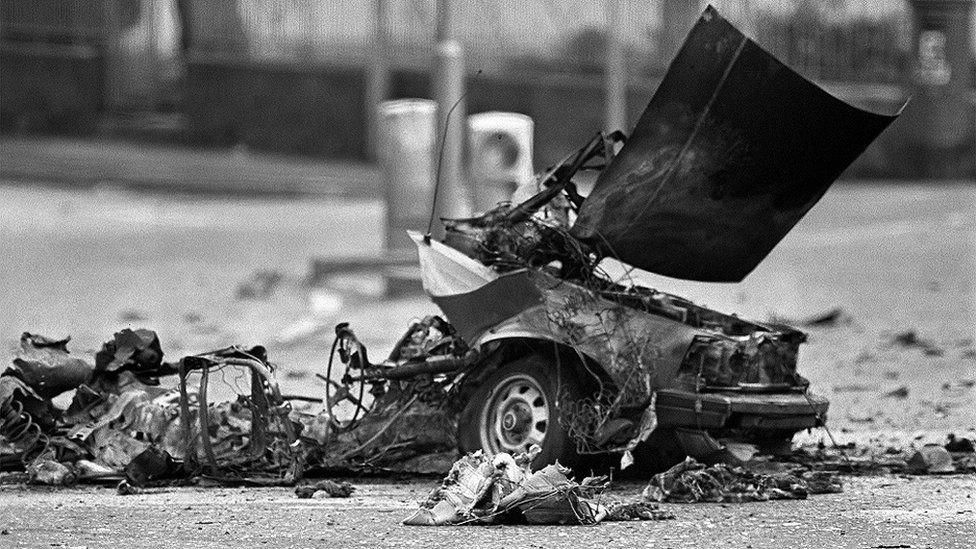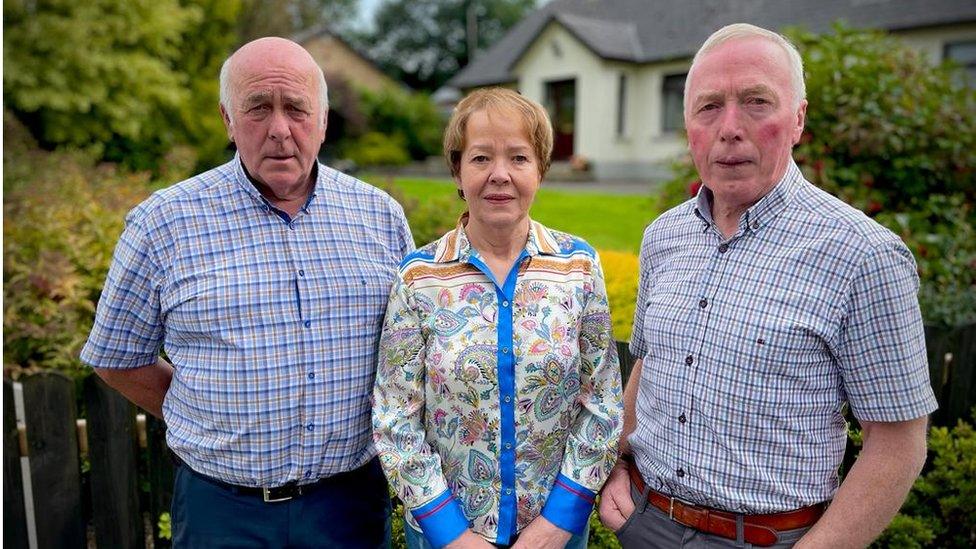Challenge to controversial Legacy Bill in High Court ends
- Published

The Troubles was a period of conflict which lasted for 30 years and cost the lives of more than 3,500 people
The government's new legacy laws are shutting out any hope of ever achieving justice for Troubles victims, the High Court has been told.
A legal challenge to the controversial Troubles Act, external ended without judgement after eight days of arguments on Thursday.
Mr Justice Colton reserved his verdict but promised to give priority to making a decision.
The challenge had been brought by a number of loved ones of victims, as well as a survivor of a gun attack.
He was urged by the lawyer acting for families to end "vicious" further traumatisation of victims.
What is the Northern Ireland Troubles Act?
The act, which came into affect in September, will end future civil litigation and inquests into deaths which occurred during more than 30 years of violence in Northern, known as the Troubles.
The government has said the legislation, which applies to all former members of the security forces and ex-paramilitaries, is an attempt to draw a line under the events of the past.
It has repeatedly stated the new act is, in its view, human rights compliant.
Prosecutions that are currently ongoing will continue to conclusion. However, any inquests that have begun will end in May unless they have reached the point of delivering findings.
It is also likely to limit investigations, which from now on would be undertaken by the Independent Commission for Reconciliation and Information Recovery (ICRIR).
Opponents, which include victims' groups and all political parties in Northern Ireland, have argued it will remove access to justice.
A number of legal challenges to it have been brought by victims groups and families of people who were killed or injured during the Troubles.
Lead cases
In a legal battle ultimately expected to reach the Supreme Court, proceedings issued by Martina Dillon, John McEvoy and Lynda McManus are among the lead cases.
Ms Dillon's 45-year-old husband, Seamus, was shot dead in a loyalist attack, external at the Glengannon Hotel in Dungannon, County Tyrone, in 1997.
Mr McEvoy survived a loyalist shooting on the Thierafurth Inn in Kilcoo, County Down, in 1992 which claimed the life of 42-year-old Peter McCormack.
Ms McManus's father, James, was among those wounded in the Sean Graham bookmakers massacre earlier in the same year.
John Larkin KC, acting for the applicants, said: "The experiences of the Troubles, year by year, continues to confirm that legislation is sometimes incapable of ensuring that all tears are wiped away, it's simply impossible for legislators to achieve.
"What the applicants seek, individually and collectively, is not that the legislation will wipe away their tears, but that legislation will not cause them to weep again."
Related topics
- Published21 November 2023

- Published6 September 2023

- Published5 September 2023
